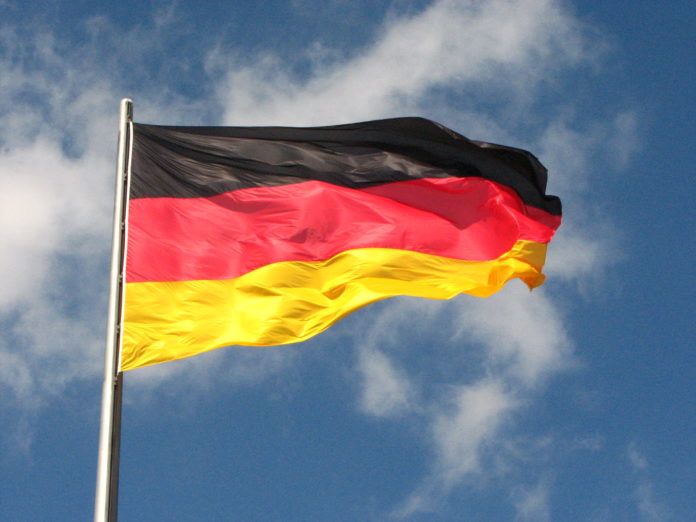
Germany is one of the largest TV markets in the world – and a rather peculiar one in some respects. Foreign businesses considering whether to enter the German TV market should be aware that Germany has the largest and best-financed public broadcasting system in the world, making it a competitive landscape to break into.
The ARD (a federal alliance of regional public broadcasters) is the 25th largest media corporation in the world, with a turnover of € 6,485 billion per year. In addition there is the ZDF, with a turnover of € 2,113 billion. Channels of public broadcasters reach about 45 % of the general audience in Germany, and therefore form a large part of the German TV market.
For the moment at least, it remains to be seen which models will prove to be the most successful. There is certainly a lot of movement in the market, with new players entering almost every month, and the established providers adapting their products rapidly, in order to meet new challenges (“TV anywhere” and “TV anytime” becoming increasingly relevant).A second notable characteristic of the German TV market is that “Free TV” is still the dominant business model. While Pay-TV, teleshopping and other models are on the rise, private broadcaster revenues still predominantly come from advertising, with most TV channels offered without charge to viewers. The same goes for the public channels, which are free (save for public broadcasting fees). Having said that, other business models are becoming increasingly prevalent, for example “hybrid” subscription services combining linear TV with Video on Demand (VoD).
The Regulatory Perspective
So what regulatory requirements should OTT TV providers keep in mind when entering the German market?
First, and most importantly, German broadcasting regulation comprises both written and unwritten rules. It is often said that German media law is more about politics than black letter law, and personal connections matter.
Apart from that, the broadcasting regulatory landscape consists of a variety of rules from different legal fields:
- Copyright law is relevant both for content sourcing (who do I get the necessary rights from?) and for distribution (what can I do on the basis of those rights?).
- Broadcasting regulation is relevant to broadcasters (do I need a licence? what are the regulatory requirements?), but also to distribution (German “platform regulation” is explained below). German broadcasting regulation also includes youth protection law, which tends to be rather strict compared to other countries.
- Cartel law prevents the abuse of dominant market power and applies to any dominant market participant – which is quite common in the concentrated German media markets. The prohibition of abusive practices therefore applies to many broadcasters, cable network providers, marketing agencies, providers of sports rights, and is even relevant for collecting societies. Agreements that restrict competition are also forbidden and are receiving increasing attention from the competition authorities.
- Telecommunications law regulates the conduct of internet service providers (ISPs) in relation to any content they carry over their networks – including audiovisual TV streams. The new EU Telecoms Single Market (TSM) Regulation imposes strict “net neutrality” conditions concerning cooperation of content providers with ISPs, e.g. in relation to a Quality of Service (QoS) offering or differentiated pricing (particularly “zero rating”). For more details on the new net neutrality rules see the Bird & Bird Digital Business weblog.
Legal hot topics for OTT TV providers in Germany
While it is certainly not possible to briefly sum up all legal matters that may become relevant when entering the German market, an overview of the three most important issues is set out below.
1) Broadcasting Law: The country of origin principle
Germany is subject both to the EU´s Audio Visual Media Services (AVMS) Directive and the Council of Europe´s Convention on Transfrontier Television. Both the Directive and the Convention bind Germany to the so-called country of origin principle. This rule prevents “secondary regulation”. In simple terms, this means that when a channel is broadcast from another state which is a party to either the Directive or the Convention, the German authorities are not allowed to apply their own broadcasting regulation in respect of that channel. Therefore, in principle, such broadcasters need only adhere to the broadcasting rules of their country of origin, though there are a number of exceptions.
The two most important limitations/exceptions of the country of origin principle are:
- The principle, in its strict and reliable form, applies only to linear TV channels and not to VoD and radio (there is also a country of origin principle applying to VoD, but it is neither strict nor reliable).
- The principle has protective effect only insofar as the channels are made available without delay and without any modifications. Therefore, adding a new (language) audio track, adding or removing content or transmitting the channel at another time (not including technical delays) has the effect of nullifying the regulatory dispensation granted by the country of origin principle.
There are also other exceptions, e.g. for situations where a broadcaster ‘improperly’ uses the country of origin principle to circumvent rules of another member state.
2) Broadcasting law: Am I a broadcaster or a platform provider?
German broadcasting law contains specific rules directed at “platform providers”; i.e. entities that bundle TV or radio channels from other broadcasters, and offer it in their own name. Platform providers include cable networks, but also “OTT platforms” such as Magine or Zattoo.
In most other jurisdictions, entities that offer bundled content are usually treated as broadcasters, so specific platform regulation may seem surprising to non-German OTT TV providers. German law lays down a number of rules for these platform providers, including the obligation to offer access to the platform in a non-discriminative way, and to carry certain channels (“must-carry rules”); though the latter usually don’t apply to OTT TV platforms.
3) Copyright law: What rights do I need, and where do I get them?
To offer audiovisual content over the internet, IP rights covering German territory must be obtained, unless an exception applies. Such an exception is currently available in respect of satellite distribution where the satellite uplink station is in another EU member state (another “country of origin” principle). There is, however, no such rule for internet transmission.
In any case, at present, distributing content in Germany “over the top”, i.e. through the internet, needs “German rights”, in respect of all affected rights holders, and in respect of all exploitations scenarios.
Where and how these rights can be procured depends on the circumstances and position of the OTT TV provider. In some cases, the provider already owns all (worldwide) rights in respect of these channels or can buy them from other broadcasters. In other cases, the rights may be more difficult to acquire, particularly if the OTT TV provider is not the original broadcaster, and the original broadcasters have obtained rights only for their own distribution (this is usually the case for the public TV channels). In such a case, procuring all the requisite IP rights for an OTT offering can be challenging.









